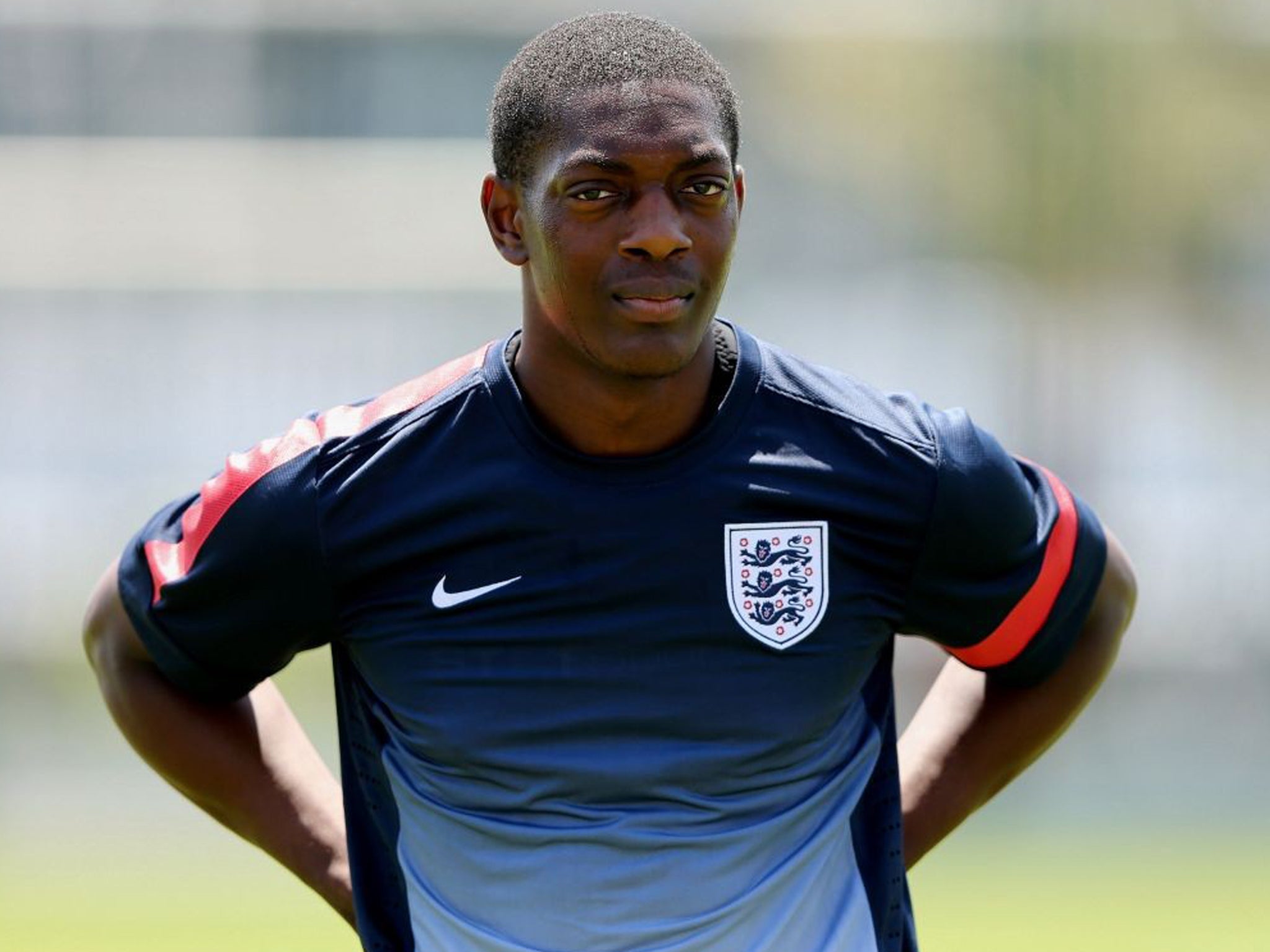Marvin Sordell: The England under-21s striker making a noise about human trafficking
Bolton player is also fighting back against the remnants of racism left in the English game

Footballers can be surprising and Marvin Sordell is one of those. To the average fan he might be known as a striker at Watford who failed to replicate impressive scoring statistics after joining Bolton last year, then became caught up in a case of racist abuse at Millwall. And wasn't there something about his Bolton manager warning about an obsession with Twitter and Facebook?
Far from being some sort of crazy, mixed-up kid, Sordell turns out on closer examination to be a well spoken and grounded 22 year-old from Pinner who has started his own charitable foundation to fight human trafficking.
During the England Under-21 team's tempestuous trip to Serbia last October, when he was among the players suffering abuse but avoided the subsequent suspensions handed to two of them for reacting to it, Sordell was shocked by a book about Sophie Hayes (a pseudonym), a white middle-class English girl who was effectively forced into six months captivity by an Albanian boyfriend.
“It made me aware of the fact that it is a problem not just in certain countries or certain types of people, it can happen to anybody,” he said. “She was a normal English girl from a middle-class family, and she met somebody and they became very close over a long period of time. Once you have that trust in somebody, you are basically in their hands. She went to go and meet him in his country and everything seemed normal. The second time she went back out there, her whole life changed. She was forced into prostitution and God knows what else. I can certainly help and try to raise awareness and give people understanding of the truth behind it.”
After a difficult time settling in Lancashire following his move to Bolton - which led to the manager Dougie Freedman's comments about spending too much time on social media - trafficking gave him something to focus on out of football hours, as well as providing the sort of broader perspective that many players, young and older, are accused of lacking.
In between England's second and final matches at the European Under-21 Championship, he was a willing participant on Sunday in the “Football For All” presentation showcasing the integration of different ethnic groups in Israel under the banner of football. “That is what football is about, bringing people together, bringing communities together,” he said.
He used Twitter to draw attention to racial abuse he and other Bolton substitutes suffered from a 13 year-old boy - who was subsequently banned - while warming up in a match at Millwall. “I do think there is a still a problem with racism at home, a small problem. There is obviously massive progress from what things were like a long time ago, even before I was about. But there is still a problem which we can’t ignore really. People need to be made aware of the fact that there is a problem, rather than just ignore it because then it will only grow. It may not be hatred, it could just be people who think it is banter, or to get into somebody’s head, possibly to put you off your game. But racism could be a part of that. You are seeing people hit hard because of racism (offences). That is how it should be. I’m glad something is being done.”
As for the football, he is as disappointed as anyone here with England's efforts and his own, admitting: “I don’t think I played well enough. There will be other people saying the same things about themselves. We feel very disappointed as a group that we couldn’t show our true abilities in this tournament. We have one more game to go, and we want to give it our all, and hopefully give a performance that shows what England is all about.
Join our commenting forum
Join thought-provoking conversations, follow other Independent readers and see their replies
Comments
Bookmark popover
Removed from bookmarks